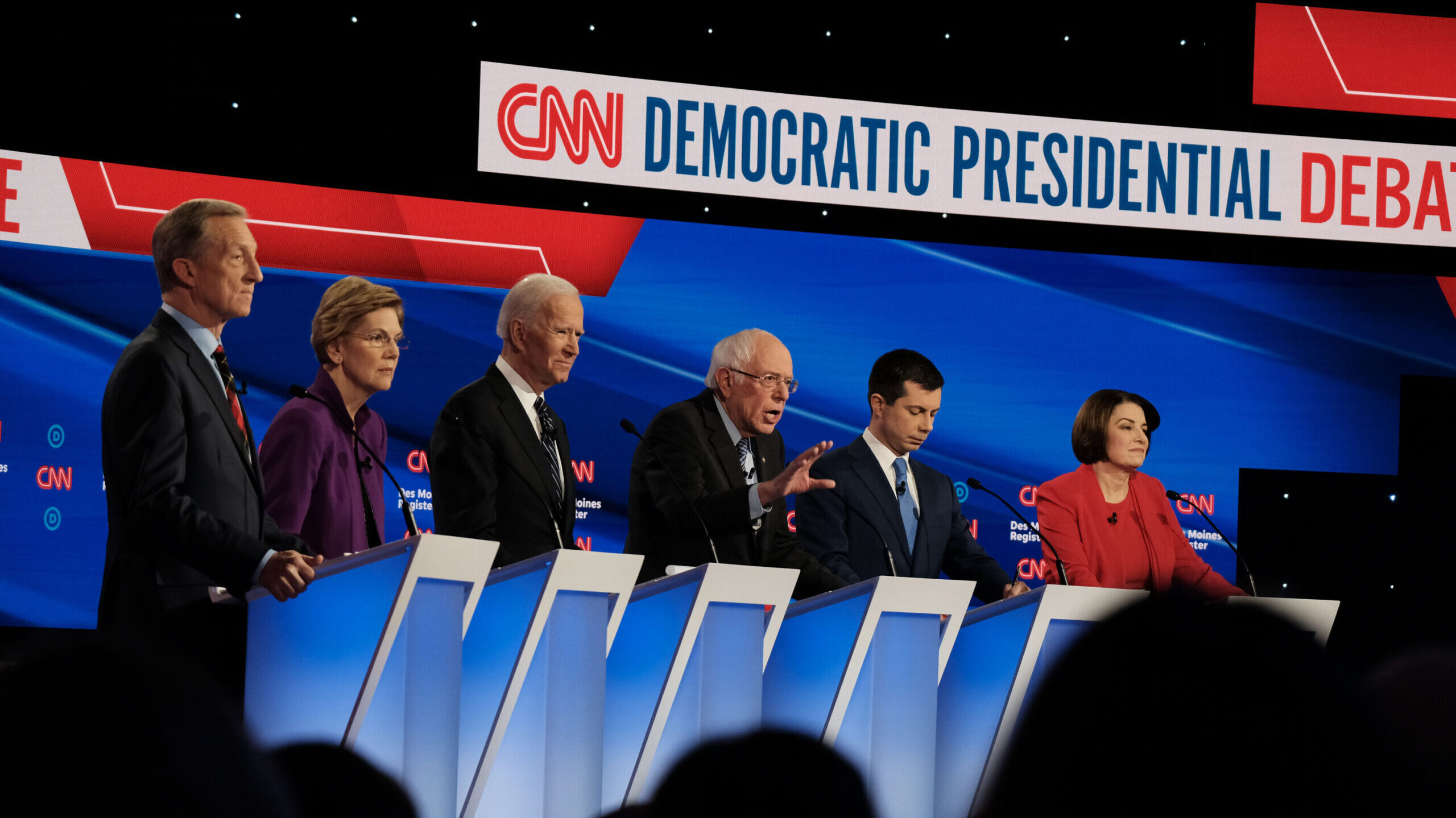
The Democratic debate, which took place on Jan. 14 in Des Moines, Iowa drew in 7.3 million voters on CNN. While the Democratic candidates addressed a variety of issues, healthcare and education being among the most prominent, CNN moderator Abby Phillip was criticized for asking Sen. Elizabeth Warren about a private conversation with Sen. Bernie Sanders.
Prior to the debate, Warren claimed that Sanders had told her, in a private dinner in 2018, that a woman could not win the election. Since then, Sanders has denied those claims. When this conversation was addressed in the debate, Phillip asked Warren, “What did you think when Senator Sanders told you that a woman could not win the election?”
After ensuing laughter from the audience, Warren said, “I disagreed. Bernie is my friend, and I am not here to try and fight with Bernie.” Warren then further elaborated on the possibility that a woman could win the election, pointing out that the male candidates at the debate had collectively lost 10 elections, while she and Sen. Amy Klobuchar had never lost.
“The basic disagreement is that in this private conversation between two people, one person says that Bernie Sanders said that a woman could not be president, and Sanders is denying that,” said political science professor Dr. Steven Nawara. “I think that, in the absence of any evidence, one way or the other, if I was the moderator; I probably would not use that language.”
In the 24-hour period following the election, #CNNisTrash was trending on Twitter. On Jan. 15, CNN found the audio to the moments after the debate in which Warren claimed that Sanders had called her a liar on national television. Sanders has also been criticized by Hillary Clinton, who said to the makers of the upcoming Hulu Documentary, “Hillary,” “Nobody likes him; nobody wants to work with him; he got nothing done.”
In addition to the debate’s exchange between Sanders and Warren, all candidates addressed healthcare. Warren and Sanders endorsed a government-run healthcare program; Sanders said his proposed Medicare for All plan would lower overall healthcare costs while Warren said that corporate taxes would help fund her healthcare proposal. Candidates Joe Biden and Klobuchar opposed Sanders’ plan to pay for Medicare for All.
Student debt and education were also addressed, each candidate proposing a different way to reduce student loans and pay for a college education. Tom Steyer opposed free college, saying that money needs to be redistributed to address inequality in the education system. Meanwhile, Pete Buttiegeig opposed free tuition for children in wealthy families, and Klobuchar said money in education should be connected to the economy.
Set alongside the proceedings of President Donald Trump’s impeachment trial, this was the last Democratic debate before the Feb. 3 Iowa caucus.
“On one hand, that debate took place while most of the country was engaged in watching the impeachment stuff, to the extent that they were paying attention to politics at all,” said Nawara. “So I am not surprised if the candidates aren’t getting the same level of attention and scrutiny as they would were the impeachment not be going on at the same time.”
The first of the state caucuses, the Iowa caucus system operates with a 15% threshold; if a candidate does earn 15% of the vote in a caucus location, then the voters in support of a candidate who did not meet the 15% viability are allowed to commit to their second choice.
“Let’s assume that there’s just four candidates: if you have Biden, Sanders, Warren and Buttigieg, four corners in a room, if 15% of people don’t go into the Buttegeig corner, those Buttigieg voters can then move to their second choice,” said Nawara. “It becomes very important who people’s second choices are; if those Butteigeig voters overwhelmingly go to Joe Biden, it’s going to greatly increase his vote totals.”
For the first time, three different results of the Iowa caucus will be released on caucus night: the First Expression of Preference, the Final Expression of Preference and the State Delegate Equivalents. The Iowa caucus will be the first statewide look into who the Democrats support, and which candidates are likely to advance to the presidential race.
